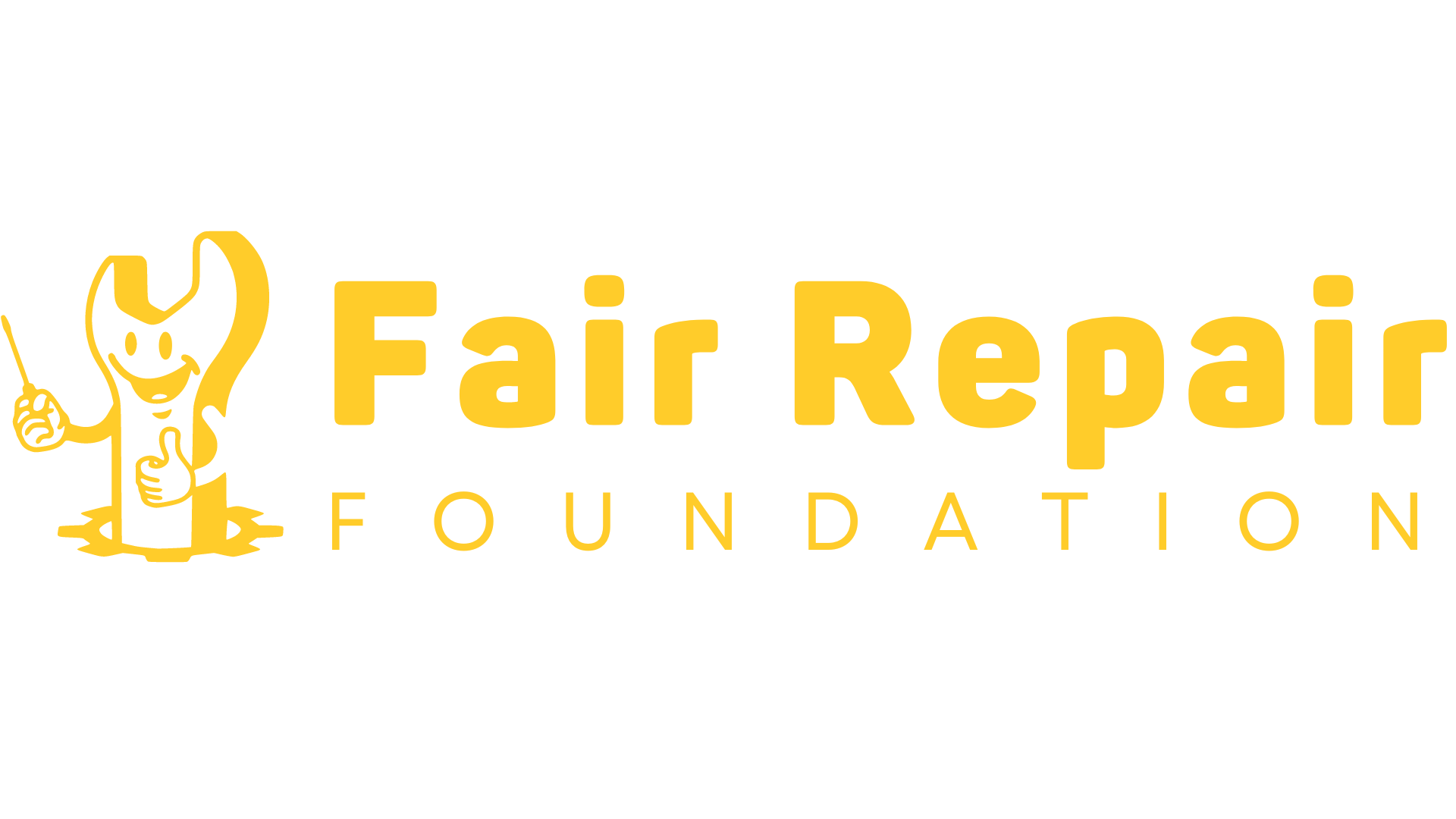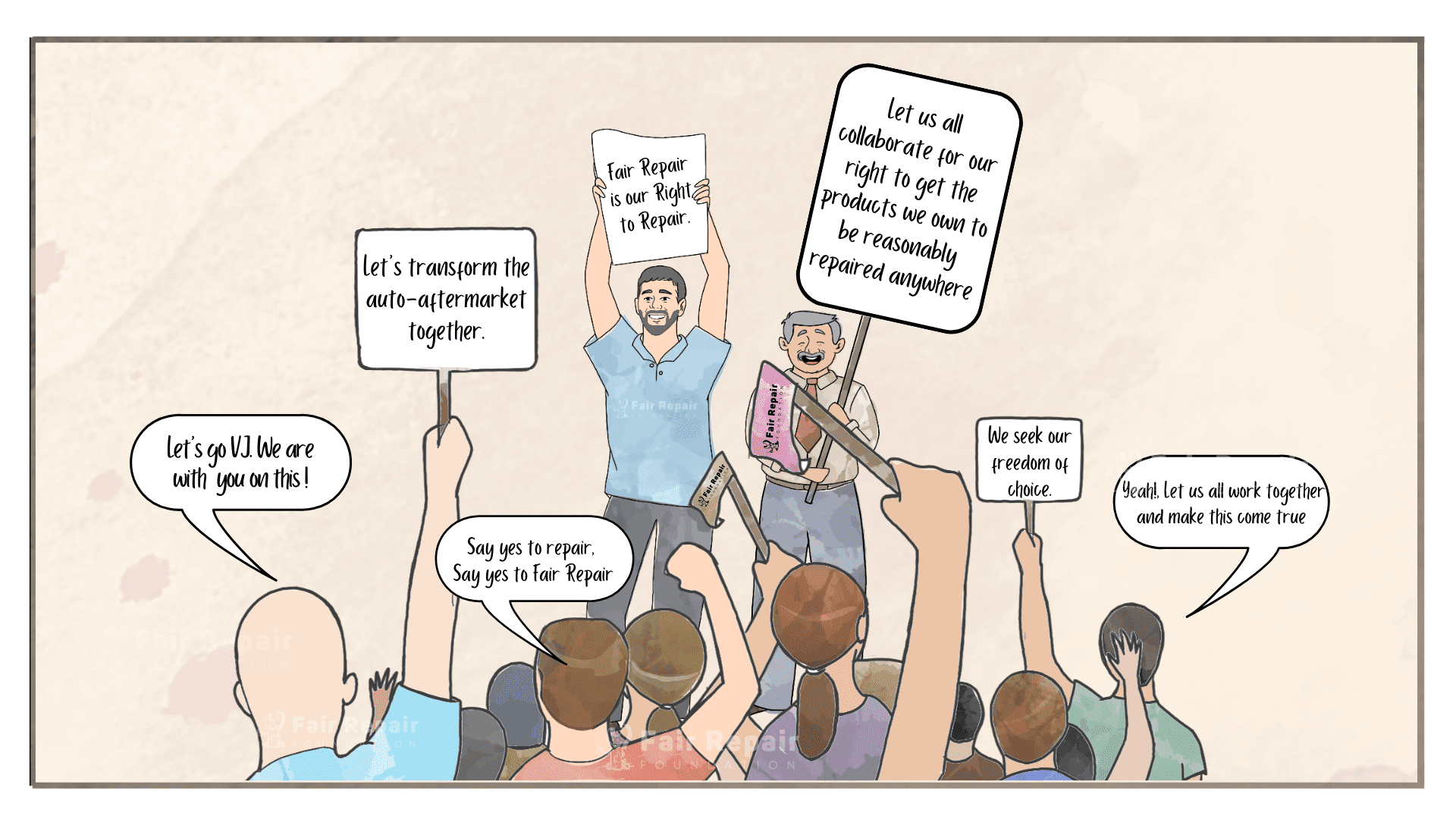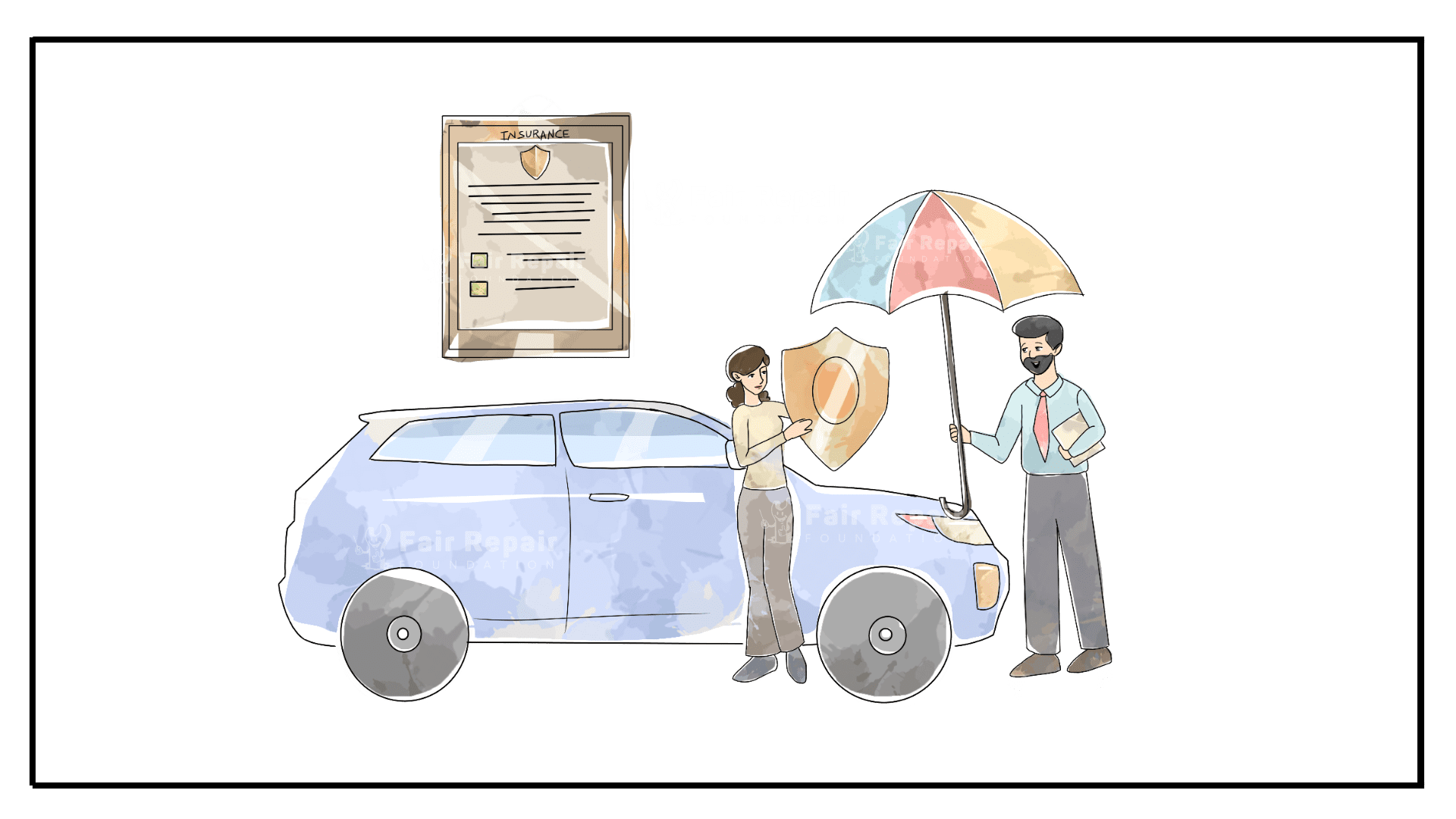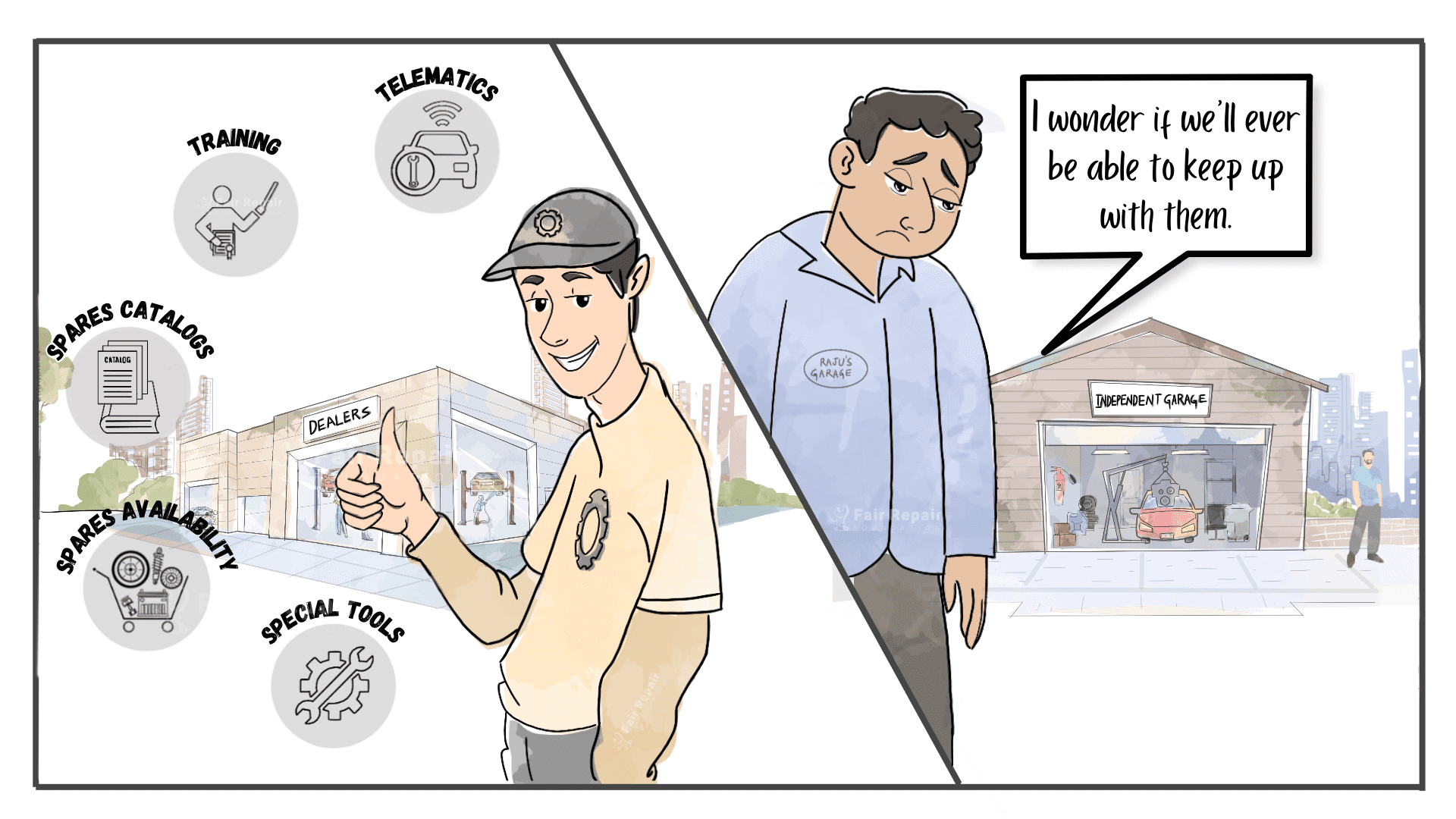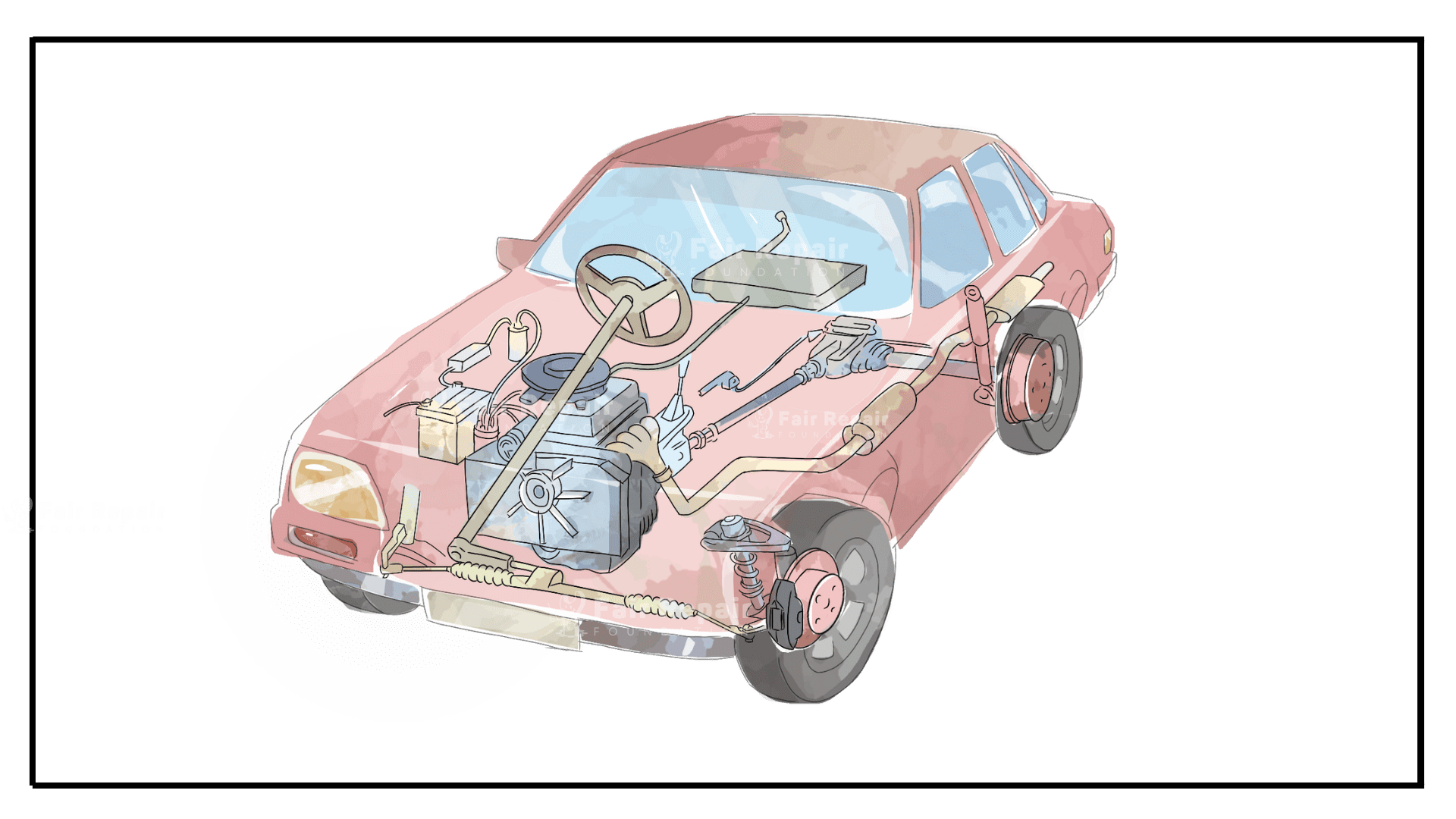
What’s The Way Forward?
The Indian automotive aftermarket hosts various businesses, including garages, body shops, distributors, component and accessory manufacturers, diagnostic tool and equipment manufacturers, inspection centres, training institutes, and roadside assistance operators. It creates an extensive support network of SMEs throughout India, benefiting customers and local economies.
As a result, failing to maintain robust competition in India would endanger the existence and potential growth of businesses and community services across the country, ranging from major cities to distant and rural locations.
The Competition Commission of India (CCI) observed that automakers, or Original Equipment Manufacturers (OEMs), maintain their dominance in the aftermarket for replacement components by restricting the availability of spares. In 2014, in a landmark ruling, the CCI imposed a fine totalling INR 2544 crore rupees (USD 420 million) on 14 car manufacturers (OEMs) for restricting the sale and supply of genuine spare parts in the open market, thereby violating Section 3(4) & Section 4 of the Competition Act, 2002. The companies fined by CCI are BMW India, Ford India, General Motors India, Hindustan Motors, Mahindra & Mahindra, Maruti Suzuki, Mercedes-Benz India, Nissan Motor India, Skoda Auto India, Tata Motors, Toyota, Honda India, Volkswagen India and Fiat India. As of the judgment, other manufacturers were still being examined.
Unfortunately, since this judgment, only a little has happened towards its effective implementation; hence, most manufacturers have unfairly retained control by restricting the availability of spares and other relevant information.
As a further impetus to enabling the Right to Repair, in July 2022, the Department of Consumer Affairs made a big step toward establishing a unified framework for the Right to Repair, promoting responsible and sustainable consumption by highlighting that the framework must be in sync with the Hon. Prime Minister’s demand for a worldwide LiFE initiative.
What Does The Industry Need From The Manufacturers?
Recently, when farmers in the USA could not repair minor problems with their John Deere tractors due to a software restriction, they resorted to a cracked version of the manufacturer’s software. Farmers were running for help to a guy with cracked software from Ukraine purchased in the Black market and not to the manufacturers. Such customer behaviour does not benefit manufacturers, nor is it sustainable for the repairers or customers. Broadly, the entire ecosystem suffers.
India has a thriving repair service industry and an abundance of third-party repairers capable of boosting appliance reuse, recyclability and lifespan. Across India, there are an estimated 1,00,000 independent repair garages for passenger cars alone. Along with 2-wheeler, 3-wheeler, Light Commercial Vehicles (LCV), Heavy Commercial Vehicles (HCV), and Farm Equipment, the total number of Independent Repairers could be well over 5,00,000.
Independent Repairers work hours to identify and source the right spares to conduct a repair. Due to a lack of support from the Manufacturers, Independent Garages and small businesses in the repair chain are being pushed out of business, thus reducing service options for the customer and making the environment less competitive and stifling innovation.
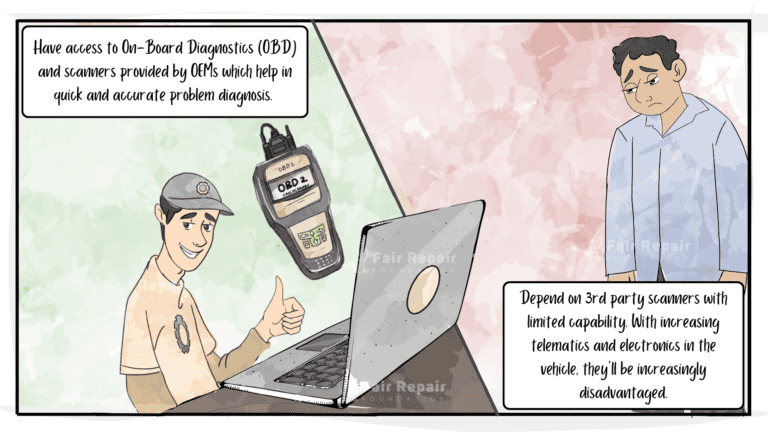
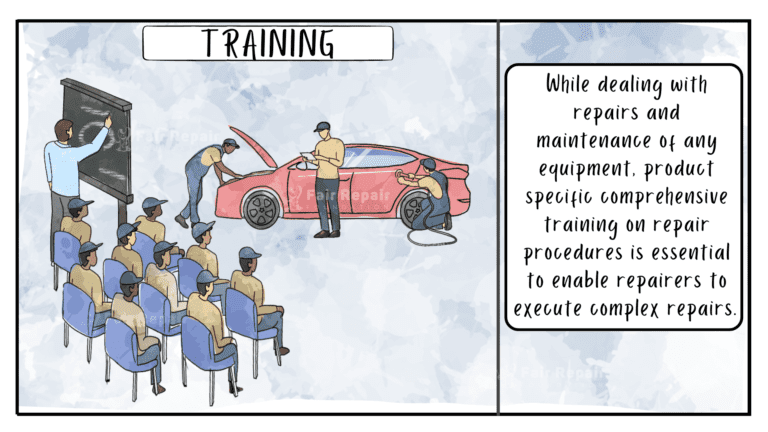
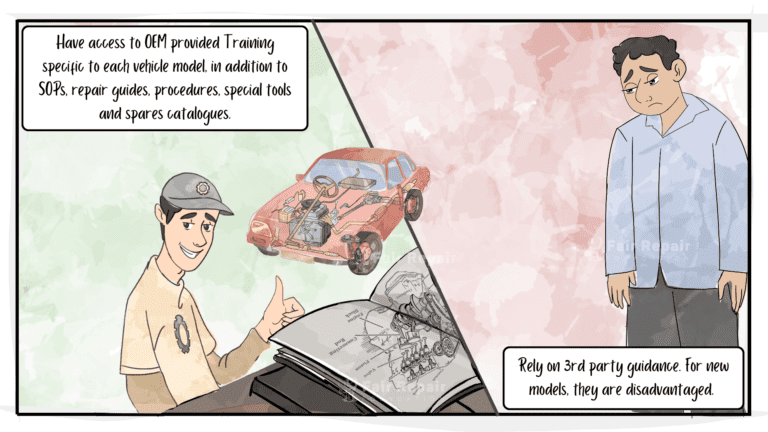
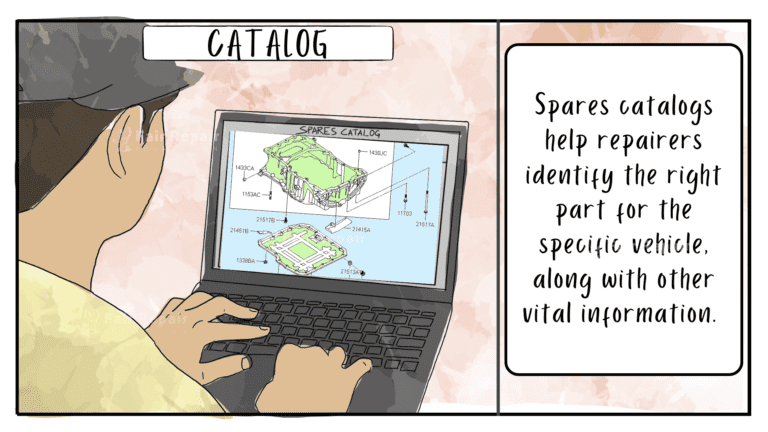
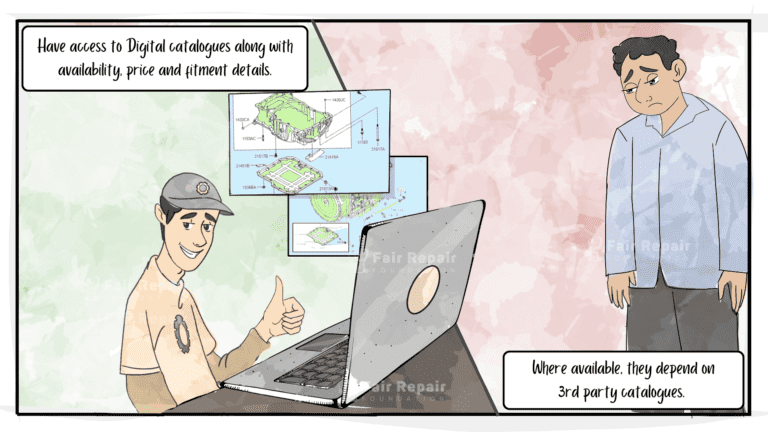
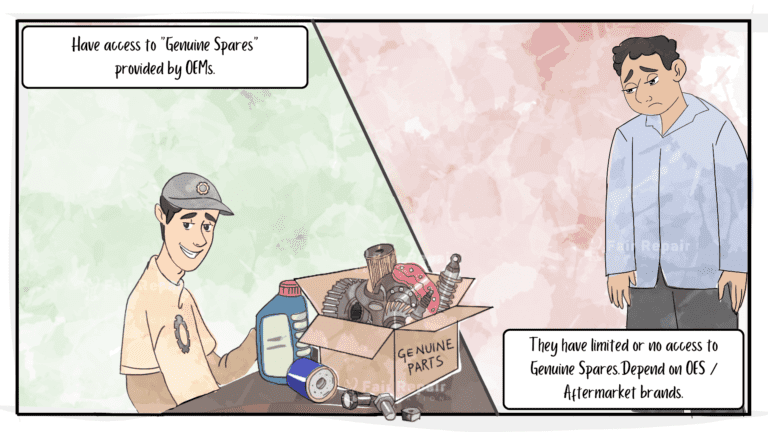
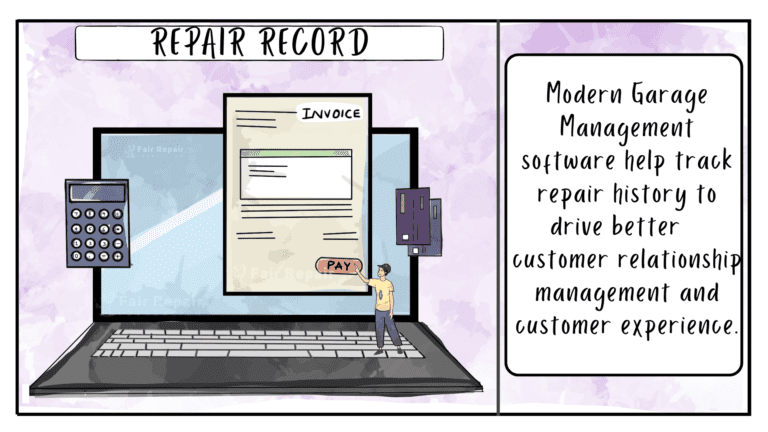
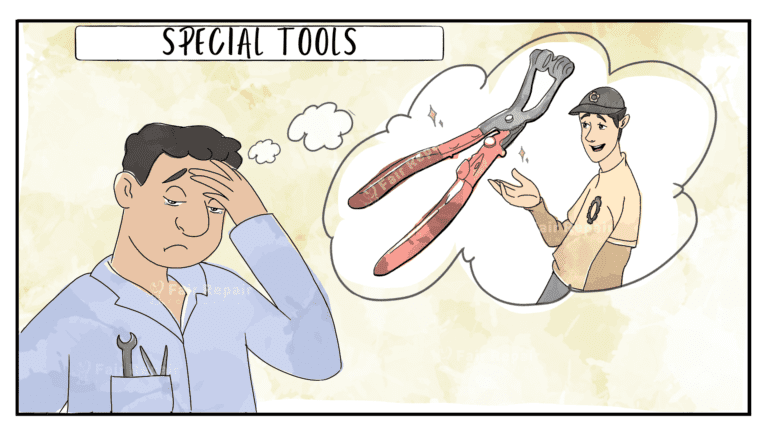
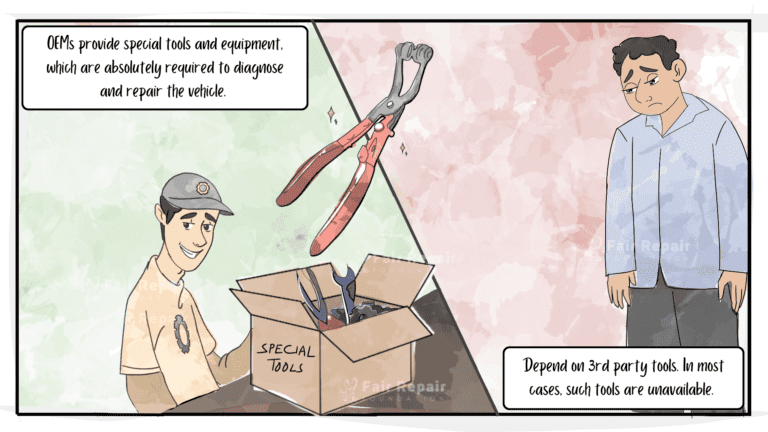
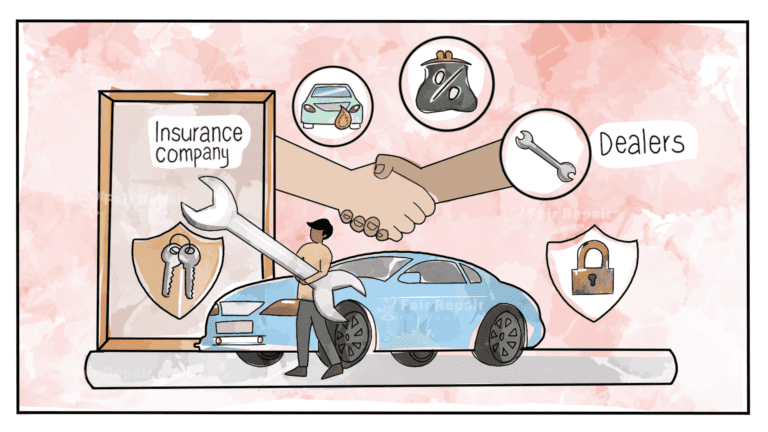
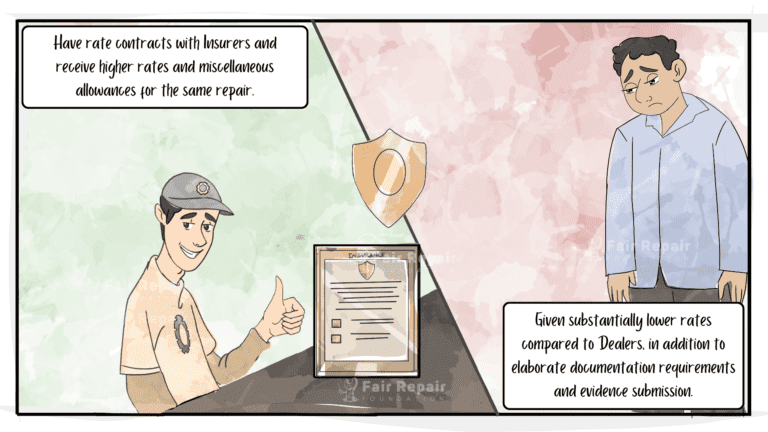
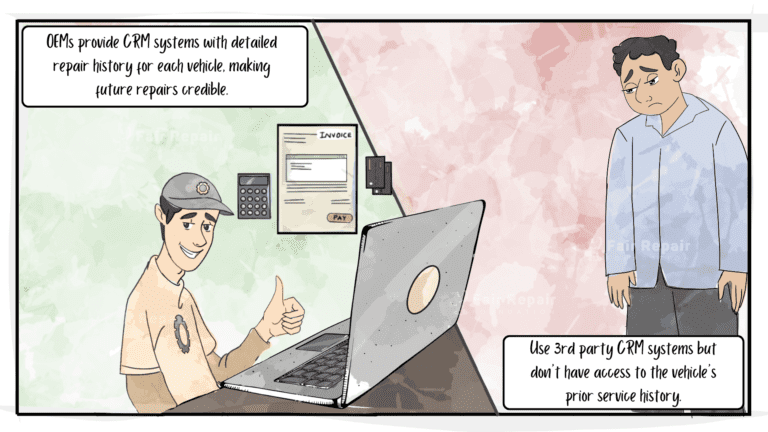
We seek to ensure that the Indian automotive aftermarket becomes an open, competitive market where your choice of provider or product is dictated by price and quality rather than restrictive contract provisions. This kind of market benefits all role players in the industry, the consumer’s pocket and the economy.
To enable Fair Repair, it is imperative that Manufacturers provide the market (e.g. independent repairers) with the following:
- Spare parts catalogues.
- Spares at a competitive price.
- Repair Procedures & Schematics.
- Technician Training.
- Access to diagnostics, special tools and equipment.
With Manufacturers providing access to catalogues, spares, diagnostic software, repair manuals and schematics:
- Vehicle owners/consumers will have an option for DIY or to pick a repairer of their choice.
- Due to a competitive environment, the quality of services available to consumers will improve.
- Small-scale manufacturers & Independent Repairers will have a fair chance at business viability, benefitting local economies.
- Cost of repair and maintenance will decrease, thus saving consumers money.
- Life of our appliances and equipment will increase, leading to reduced waste.
- More efficient utilisation of our natural resources and better for our planet.
While Manufacturers put forth several concerns to enable access, such transparency is bound to increase vehicle sales and sales of genuine spare parts (vs. spurious parts), thus leading to higher profits and an increase in overall customer trust and satisfaction with the brand.
In good measure, Maruti Suzuki, Tata, Mahindra & Mahindra and Hyundai have been successful in India because they can be serviced even in the remotest parts by Independent repairers.
As the world’s largest democracy, the “Right to Repair” in India must establish a leading, forward-thinking, best-in-class policy that enables us to own what we buy completely; therefore, allowing us to repair and customise the product with ease and at an honest price rather than being subjected to the whims of manufacturers for repairs.
We invite you to collaborate to enable this transition!
Vehicle owners/consumers will have an option for DIY or to pick a repairer.

